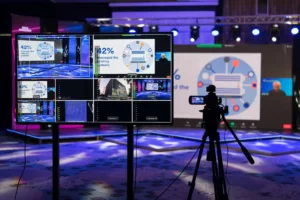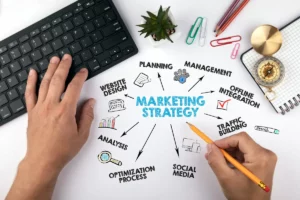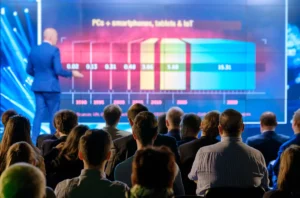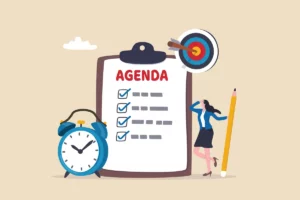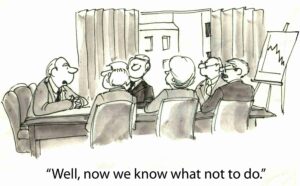Virtual events have become a vital component of business strategies, offering opportunities to connect with global audiences conveniently and cost-effectively.
However, to maximize the impact and success of virtual events, effective marketing strategies are crucial.
This guide explores essential marketing strategies tailored specifically for virtual events, providing insights into audience engagement, content creation, social media utilization, and more.
Understanding Your Audience
Before launching any marketing campaign for a virtual event, it’s essential to understand your audience thoroughly.
Audience research is the foundation of effective marketing. It involves gathering data about your target demographics, including age, gender, location, interests, and behavior patterns. This data can be obtained through various methods such as surveys, polls, feedback forms, and analyzing existing customer data.
Conducting thorough audience research allows you to tailor your marketing messages to resonate with your target audience. For instance, if your virtual event targets young professionals in the tech industry, your content and promotional strategies should align with their interests and preferences.
Utilizing data analytics tools, such as Google Analytics, social media insights, and CRM systems, provides valuable insights into your audience’s behavior and preferences. These tools help you understand what content they engage with, which platforms they use, and what motivates them to attend events.
Understanding your audience enables you to create personalized marketing messages that speak directly to their needs and interests. Personalization is key in today’s marketing landscape, as consumers expect relevant and tailored content. By knowing your audience inside out, you can craft compelling messages that capture their attention and drive engagement.
Creating Compelling Content for Virtual Events
Compelling content is the cornerstone of any successful virtual event marketing strategy. To attract and retain the attention of potential attendees, your content must be relevant, engaging, and valuable. Start by identifying the key topics and themes that resonate with your audience. Address their pain points, provide solutions, and offer valuable insights that can help them achieve their goals.
Storytelling is a powerful technique for creating compelling content. Use narratives to captivate your audience and make your event more memorable. Share success stories, case studies, and real-life examples that demonstrate the value of your event. Storytelling helps build an emotional connection with your audience, making them more likely to engage with your content and attend your event.
Incorporate a variety of content types to cater to different preferences. Blog posts, videos, infographics, podcasts, and webinars can all be used to create a diverse content mix. Videos, in particular, are highly effective for virtual event marketing. They can be used to create teaser trailers, highlight reels, speaker introductions, and behind-the-scenes content. Videos are engaging and can convey information quickly and effectively.
Collaborating with industry experts is another way to enhance the quality of your content. Invite thought leaders, influencers, and subject matter experts to contribute to your event. Their insights and expertise add credibility to your event and attract a broader audience. Expert contributions can be in the form of guest blog posts, video interviews, panel discussions, or keynote presentations.
Leveraging Social Media
Social media platforms are powerful tools for promoting virtual events and engaging with your audience.
Each platform has its unique features and user base, so it’s important to choose the ones that align with your audience demographics and event objectives.
For example, LinkedIn is ideal for professional events targeting business audiences, while Instagram and Facebook are great for reaching a broader consumer audience.
Develop a comprehensive social media strategy that includes a content calendar with diverse posts. Use event announcements to generate buzz and excitement. Share sneak peeks of what attendees can expect, such as behind-the-scenes footage, speaker highlights, and interactive polls or Q&A sessions.
User-generated content, such as testimonials from past attendees or user-submitted questions, can also be highly effective in building engagement.
Engaging actively on social media before, during, and after the event enhances visibility and encourages attendee interaction. During the event, use live streaming to broadcast key sessions, behind-the-scenes moments, and interviews with speakers. Encourage attendees to share their experiences using a dedicated event hashtag.
After the event, share highlights, recordings, and attendee testimonials to maintain engagement and keep the conversation going.
Email Marketing Campaigns
Email marketing remains one of the most effective channels for driving registrations and maintaining attendee engagement. A well-crafted email campaign can reach your target audience directly and provide them with all the information they need to participate in your event.
Start by segmenting your email list based on audience demographics and interests. This allows you to send personalized messages that resonate with each segment. Personalization can include addressing recipients by their names, referencing their previous interactions with your brand, and tailoring content to their specific interests.
Design your email campaigns to be visually appealing and easy to read. Use compelling subject lines to grab attention and entice recipients to open the email. The content of your emails should be concise and informative, highlighting the key benefits of attending the event. Include clear and compelling calls-to-action (CTAs) that prompt recipients to register, share the event with their networks, or engage with pre-event content.
Timing is also crucial in email marketing. Schedule your emails strategically to ensure they reach recipients at the right time. Send a series of emails leading up to the event, including initial announcements, reminders, and last-minute registration prompts. After the event, follow up with thank-you emails, post-event surveys, and links to recordings or additional resources.
Collaborating with Influencers and Partners
Partnering with industry influencers and event-related partners can significantly extend your event’s reach and credibility. Influencers have established audiences who trust their recommendations, making them valuable allies in promoting your event.
Identify influencers who are relevant to your industry or audience. Look for individuals who have a strong online presence and a track record of engaging their followers. Reach out to them with a proposal for collaboration, highlighting the benefits of promoting your event. Influencers can help spread the word through sponsored content, social media posts, blog articles, or video endorsements.
Strategic partnerships with other organizations or brands can also enhance your event’s visibility and appeal. Partner with companies that share your event’s goals and target audience. Co-host webinars, cross-promote content, or offer exclusive discounts to each other’s followers. Partnerships can also involve joint marketing efforts, such as shared email campaigns, social media collaborations, or co-branded promotional materials.
Building these alliances not only broadens your event’s audience base but also adds credibility and trust. When respected influencers and reputable brands endorse your event, it enhances its perceived value and attractiveness.
Utilizing SEO and Online Advertising
Optimizing your event’s online presence through search engine optimization (SEO) and targeted online advertising helps increase visibility and attract organic traffic. SEO involves optimizing your website and content to rank higher in search engine results, making it easier for potential attendees to find your event.
Start by identifying relevant keywords and phrases related to your event. These could include terms like “virtual conference,” “online workshop,” “digital summit,” and specific industry-related keywords. Incorporate these keywords into your website content, blog posts, event descriptions, and metadata. Create high-quality, informative content that answers common questions and provides valuable insights related to your event’s theme.
Online advertising, such as pay-per-click (PPC) campaigns, can complement your SEO efforts by targeting specific demographics and driving traffic to your event registration page. Platforms like Google Ads and social media advertising allow you to create highly targeted ads based on factors like location, interests, and online behavior.
Use compelling ad copy and visuals to capture attention and encourage clicks.
Retargeting is another effective online advertising strategy.
It involves displaying ads to users who have previously visited your event website or engaged with your content. Retargeting keeps your event top of mind and encourages potential attendees to return and complete their registration.
Engaging Attendees Before, During, and After the Event
Engaging attendees throughout the event lifecycle is essential for maximizing participation and fostering post-event relationships.
Pre-event engagement is crucial for building anticipation and excitement. Use teaser campaigns, countdowns, and interactive content to generate buzz. Share behind-the-scenes footage, speaker interviews, and sneak peeks of the event agenda.
During the event, focus on creating an interactive and immersive experience. Utilize live polls, Q&A sessions, and breakout rooms to encourage real-time participation. Offer networking opportunities, such as virtual meet-and-greets, discussion forums, and chat rooms, to facilitate connections between attendees. Gamification elements, like quizzes, challenges, and leaderboards, can also enhance engagement and make the event more enjoyable.
After the event, maintain momentum by sharing highlights, recordings, and attendee testimonials. Send personalized thank-you emails to express appreciation and gather feedback through post-event surveys. Analyzing feedback helps identify areas for improvement and informs future event planning.
Continued engagement builds a sense of community and loyalty among attendees.
Consider creating a dedicated online space, such as a LinkedIn group or a forum, where attendees can connect, share insights, and continue discussions.
Regularly share relevant content, industry news, and updates to keep the community active and engaged.
Conclusion
Successful marketing strategies for virtual events involve understanding your audience, creating compelling content, leveraging social media and email marketing, collaborating with influencers and partners, optimizing SEO and online advertising efforts, and maintaining continuous attendee engagement throughout the event lifecycle.
By implementing these strategies effectively, you can enhance event visibility, drive registrations, maximize attendee participation, and ultimately achieve your event objectives successfully.



